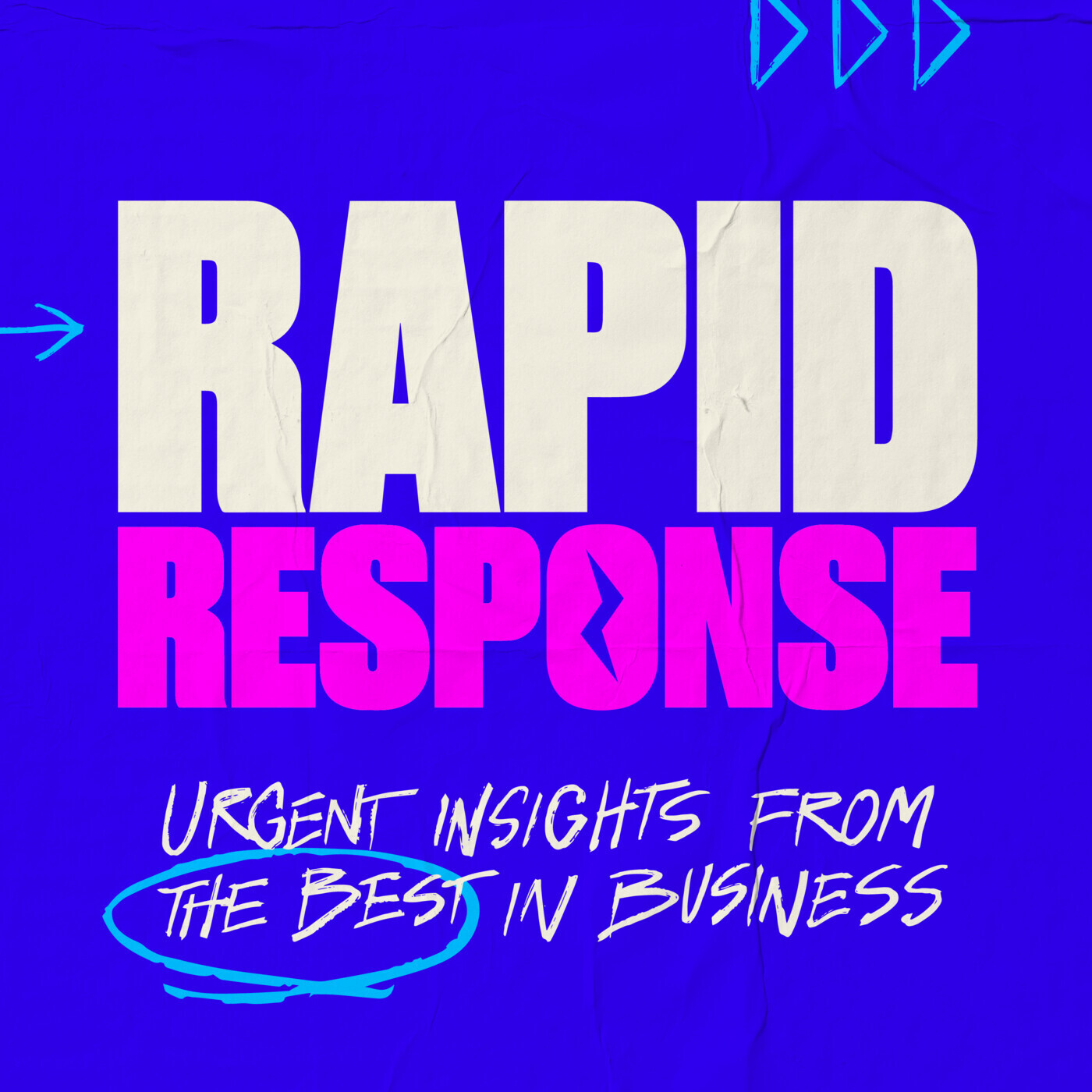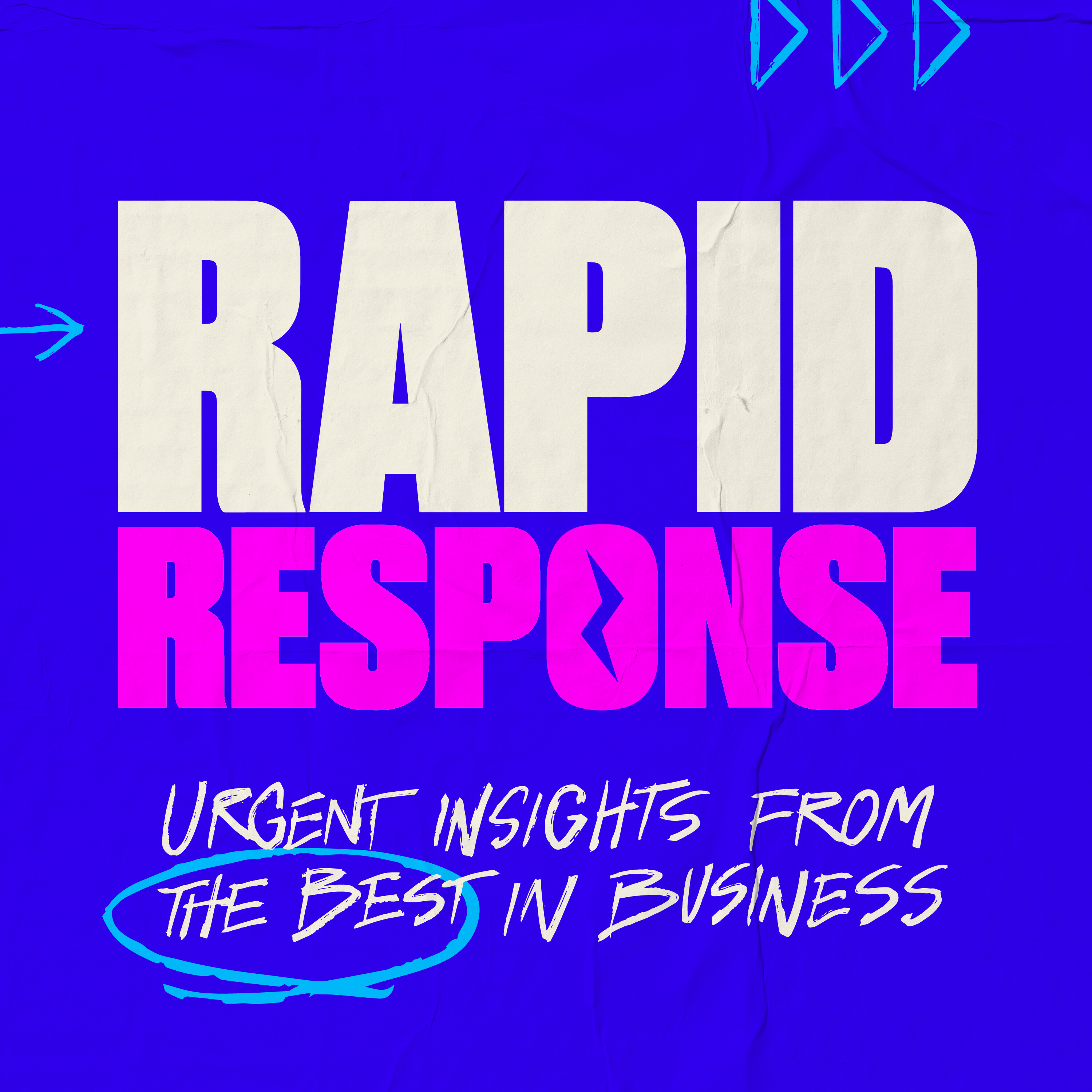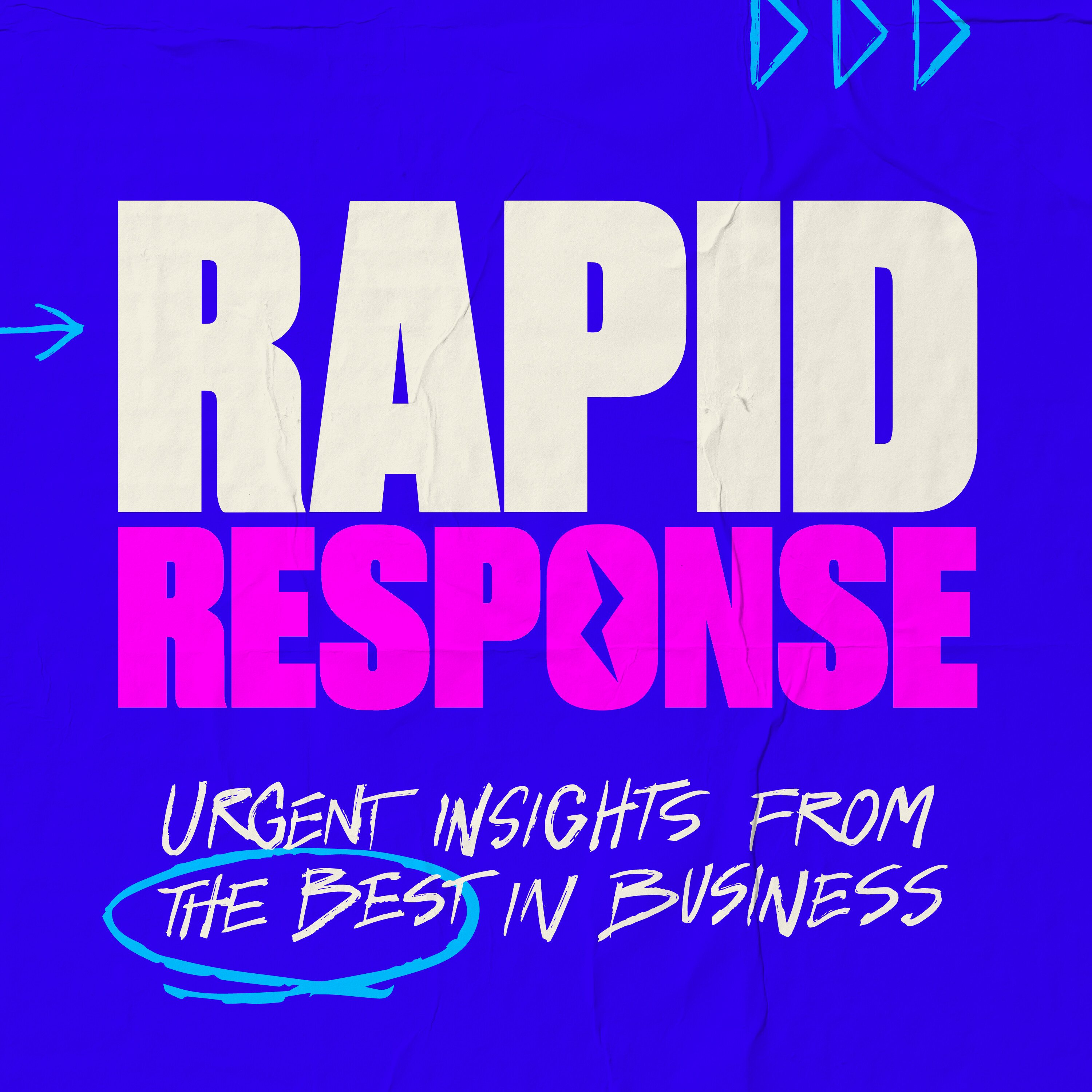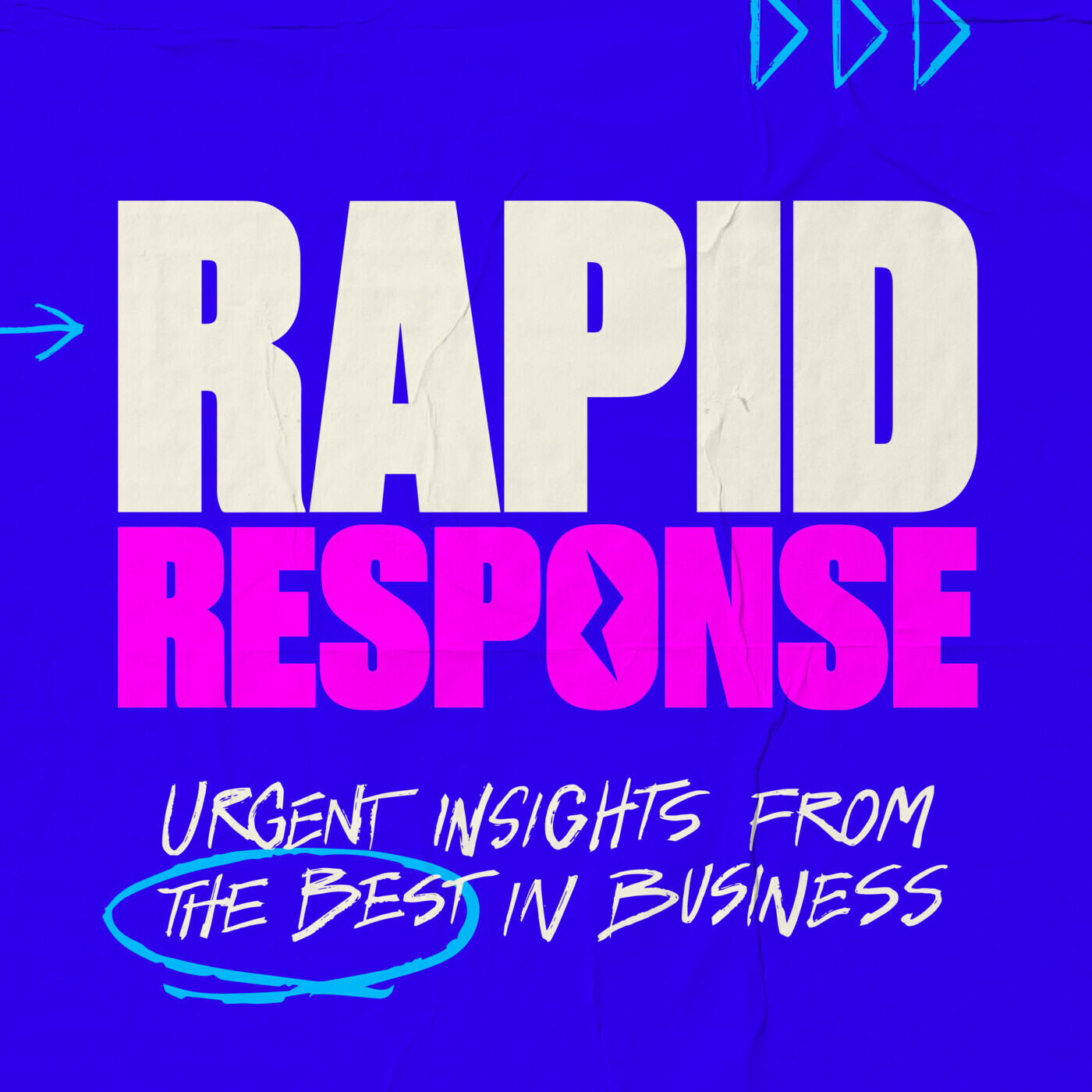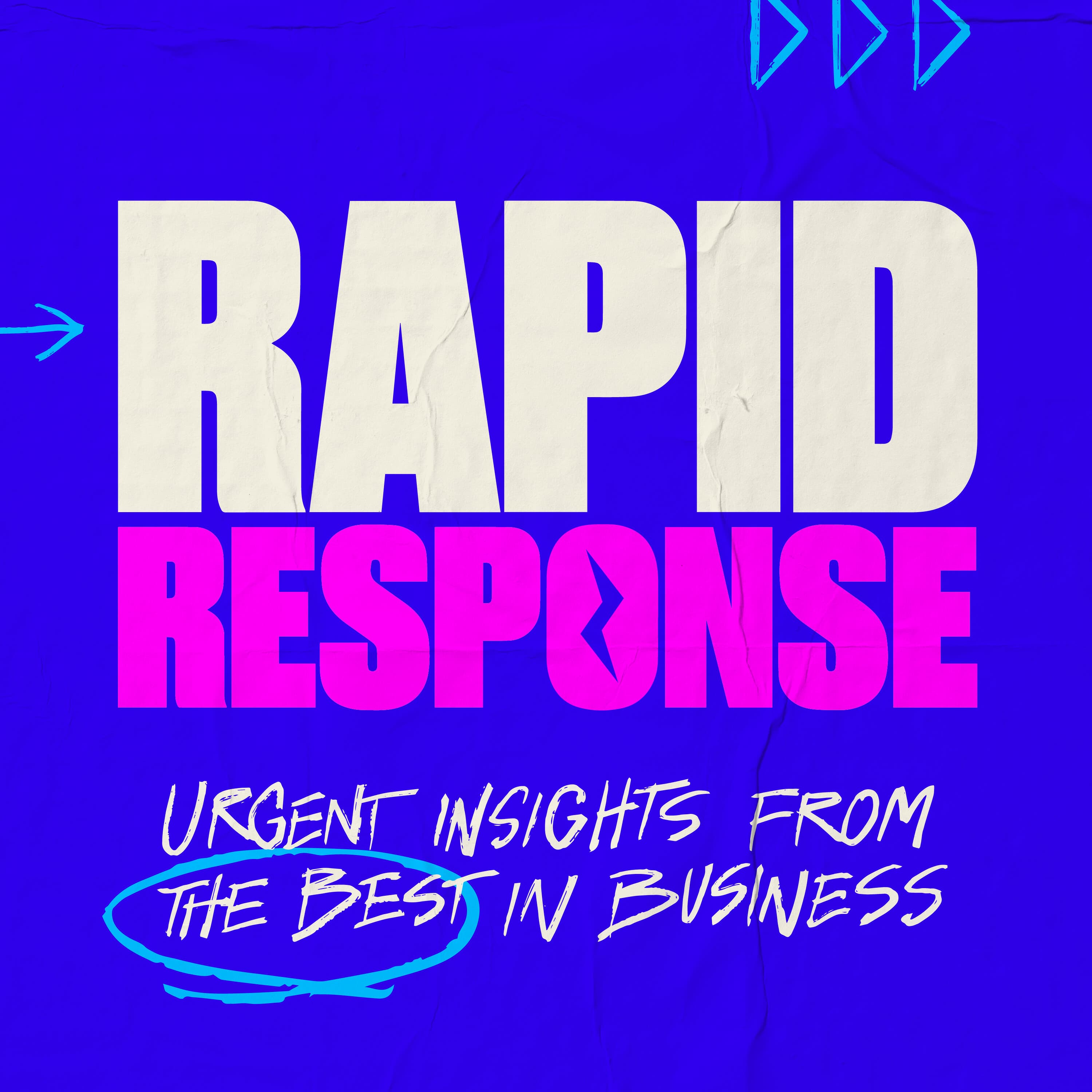
July 16, 2024 • 25min
Rapid Response: What’s the next Barbenheimer? with The Ankler’s Janice Min
Masters of Scale
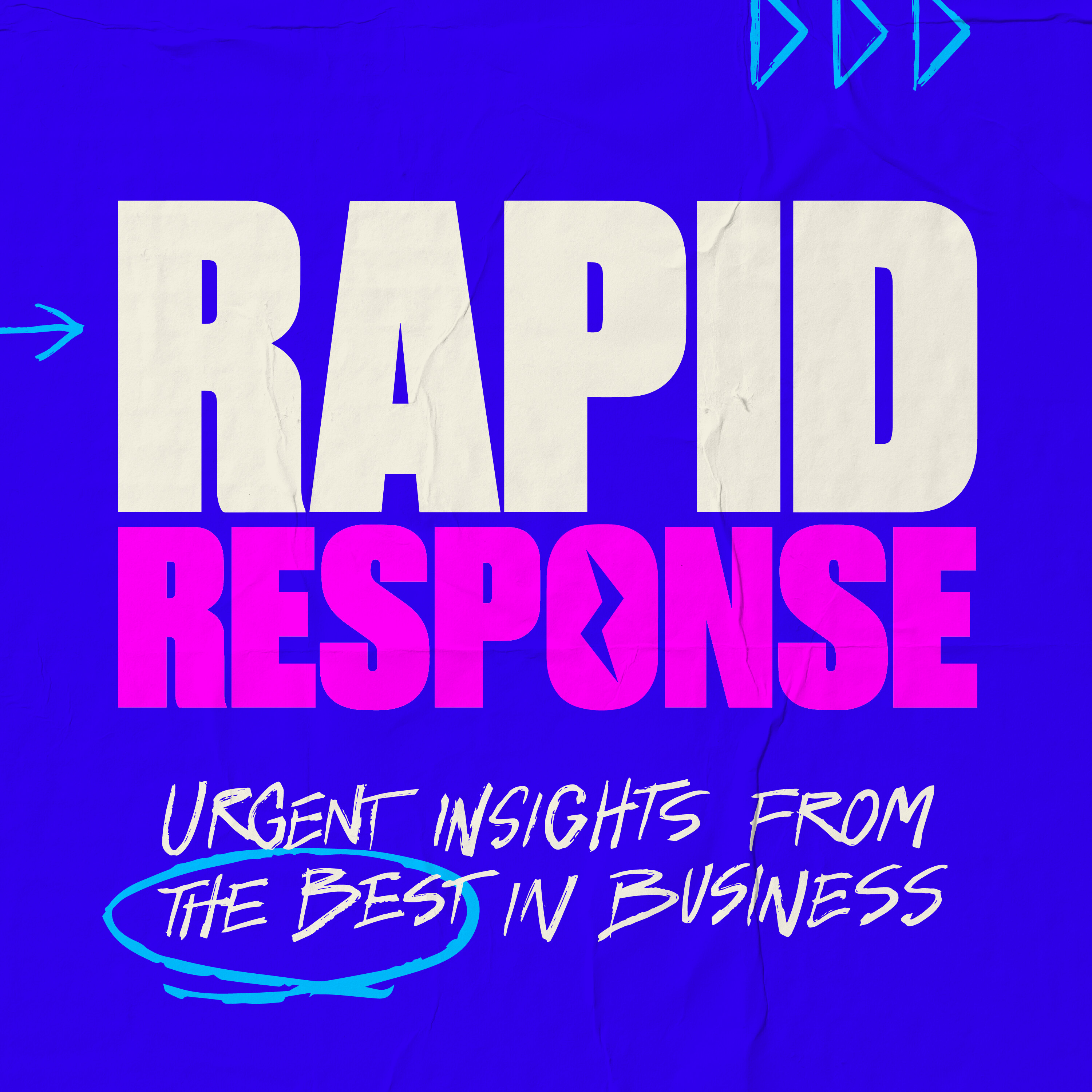
Key Takeaways
- The summer movie season has been weak this year, with no major blockbusters like last year's "Barbenheimer" phenomenon. This is partly due to production delays from last year's strikes.
- Legacy media companies like Paramount, Disney, and Warner Bros. Discovery are struggling with debt and the transition to streaming. They may be overtaken by more nimble independent studios and tech giants like Apple and Amazon.
- YouTube remains underestimated as a dominant streaming platform, especially among younger viewers. Its creator economy is challenging Hollywood's traditional model.
- AI tools for content creation are advancing rapidly, but Hollywood has been slow to embrace them, putting the industry at risk of falling behind.
- Massive deals for live sports rights, like the NBA's new $76 billion contract, may be unsustainable as consumers resist higher streaming prices.
- The entertainment industry is shifting towards theme parks, live experiences, and direct-to-consumer models as traditional film/TV struggles.
Introduction
Janice Min, co-founder and CEO of entertainment news startup Ankler Media, joins the podcast to discuss the current state of the entertainment industry. As a veteran media executive who previously led Us Weekly and The Hollywood Reporter, Min offers an insider's perspective on the major disruptions and challenges facing Hollywood today.
The conversation covers the weak summer movie season, struggles of legacy media companies, the dominance of streaming platforms like Netflix and YouTube, the potential impact of AI, massive sports rights deals, and overall shifts in how entertainment content is created and consumed. Min provides candid insights on the financial pressures, creative challenges, and technological changes reshaping the industry.
Topics Discussed
Weak Summer Movie Season (02:14)
Min notes that this summer's movie slate has been disappointing compared to last year's "Barbenheimer" phenomenon of Barbie and Oppenheimer. Key points:
- Production delays from last year's strikes have led to a "pipeline problem" with fewer big releases
- Audiences are rejecting many franchise reboots and sequels
- Inside Out 2 has been a rare bright spot, exceeding $1 billion at the box office
- The theatrical experience now has to offer something spectacular to compete with home streaming
"We're in a weird period in entertainment...Things were not put in production, or things that were in production got pushed back because there was a lot of insecurity around when the strike would end."
Importance of the Summer Movie Season (05:01)
Min explains why summer has traditionally been so important for Hollywood:
- Studios would release their biggest, most expensive films in summer
- Moviegoing was a cultural habit and social activity
- Now, the bar for theatrical releases is much higher - they need to offer a spectacular experience
- Studios are relying more on safe sequels rather than original projects
"It's a little bit like going to movies now has this expectation, like going to Six Flags. Like, you can't just ride a scary roller coaster. It has to go upside down and you're suspended for 6 seconds and then you have to go 90 miles an hour down."
Streaming Platforms and Summer Releases (06:35)
The discussion turns to how streaming services approach "summer blockbusters":
- Netflix has tried to create franchise-level streaming movies year-round
- Streaming services don't market films as aggressively as theatrical releases
- Netflix relies more on its algorithm to surface content to viewers
- Some unexpected streaming hits like "Baby Reindeer" have emerged organically
Paramount-Skydance Deal (07:52)
Min provides context on the potential acquisition of Paramount by Skydance:
- Paramount, like other legacy studios, is burdened with debt from the transition to streaming
- David Ellison of Skydance loves traditional blockbuster filmmaking
- The deal may bring a tech industry ethos to Paramount via David's father Larry Ellison
- $2 billion in "cost efficiencies" likely means major job cuts and asset sales
"I think you'll probably start to see whatever the tech ethos is of Larry Ellison - and I don't think it's a gentle, kind one - begin to take shape at Paramount."
Future of Legacy Media Companies (10:50)
Min shares her outlook for traditional Hollywood studios:
- Many predict a rise of nimble independent studios over the next few years
- Legacy companies are burdened with outdated infrastructure and high costs
- Further layoffs and cost-cutting are likely at major studios
YouTube's Dominance (11:51)
The conversation turns to YouTube's overlooked strength as a streaming platform:
- YouTube far outpaces other platforms in time spent viewing
- Hollywood tends to see YouTube mainly as a promotional tool
- The creator economy is shifting away from traditional Hollywood as the end goal
- Some top creators are rejecting Hollywood deals to focus on direct audience relationships
"We totally underestimate YouTube. When you look at the amount of time spent on YouTube versus any other streaming platform, I mean, it hands down blows away everything."
AI in Entertainment (16:43)
Min discusses the entertainment industry's slow adoption of AI tools:
- Studios are using AI for special effects but not openly discussing it
- Text-to-video AI tools are advancing rapidly
- Hollywood is falling behind in experimenting with and understanding AI capabilities
- By next year, average people may be able to create AI-generated films
"I would say Hollywood's already in the hole on AI and doesn't realize it. So the climbing out process will be super challenging."
NBA's Massive TV Deal (18:49)
Min expresses skepticism about the sustainability of huge sports rights deals:
- The NBA's new $76 billion deal assumes continued high viewership for regular season games
- Streaming services see sports as a way to reduce subscriber churn
- Costs will likely be passed on to consumers via higher subscription prices
- The model recreates the old cable bundle approach that consumers rejected
"There is this thing happening, and again, this is one of the things Hollywood is susceptible towards, is big solutions...Oh, my God. The silver bullet is sports. People love live. People love sports."
Min's Career Journey (21:17)
Min reflects on her transition from mass market celebrity coverage to niche industry news:
- Us Weekly rode the peak of mass celebrity culture in the pre-social media era
- The Hollywood Reporter allowed for more specialized industry coverage
- Ankler focuses on unvarnished truth about industry disruption for an insider audience
- Niche, subscription-based models are currently more viable than mass market
Future of the Entertainment Business (23:56)
Min shares her outlook on key issues facing the industry:
- The future of legacy studios like Disney, Warner Bros, and Paramount is at stake
- Theme parks and live experiences are becoming more important revenue streams
- Tech giants like Amazon, Apple and Netflix may come to dominate
- The era of watercooler TV moments and shared cultural experiences is fading
"I would hate to see the industry become an Amazon, Apple, Netflix town. I don't think that's fully healthy. But for anyone who spends their day shopping on Amazon or going to Whole Foods, you can see how they're just better resourced, have better customer data, and you can kind of see the march continuing."
Conclusion
Janice Min paints a picture of an entertainment industry in flux, facing major technological and cultural shifts. Legacy media companies are struggling with debt and the transition to streaming, while tech giants and independent creators gain ground. The summer movie season has lost its cultural cachet, and shared viewing experiences are increasingly rare. While consumers have more content choices than ever, the industry may be taking fewer creative risks. Min sees further consolidation ahead, with tech companies and theme park experiences becoming more central to the business. Overall, she portrays an industry racing to adapt to new technologies and consumer behaviors, with an uncertain future for many traditional players.

